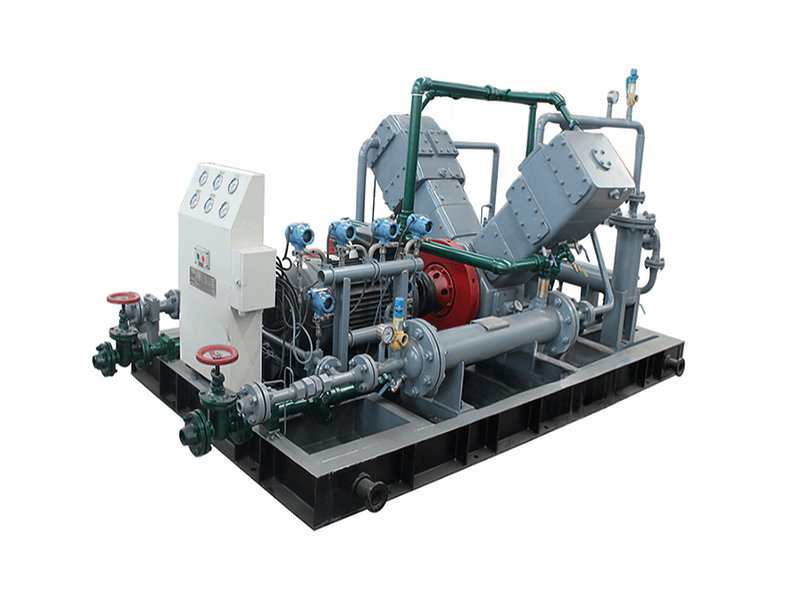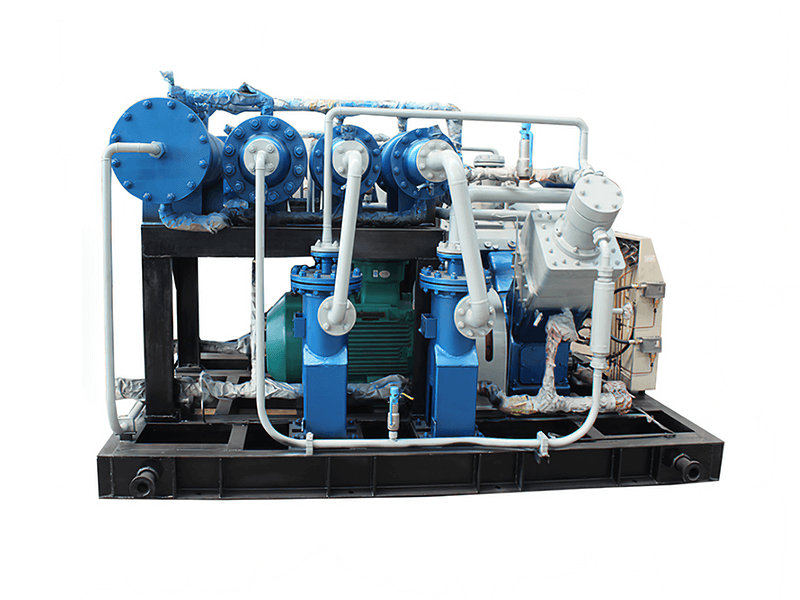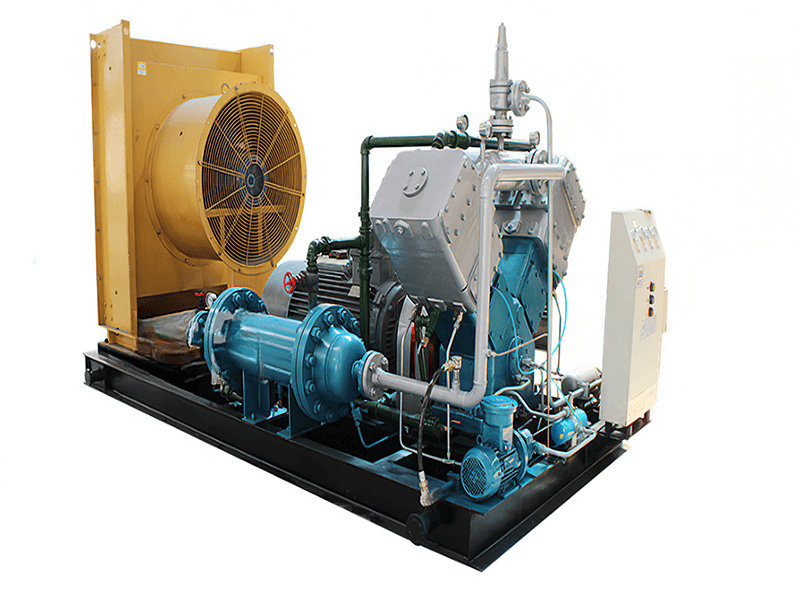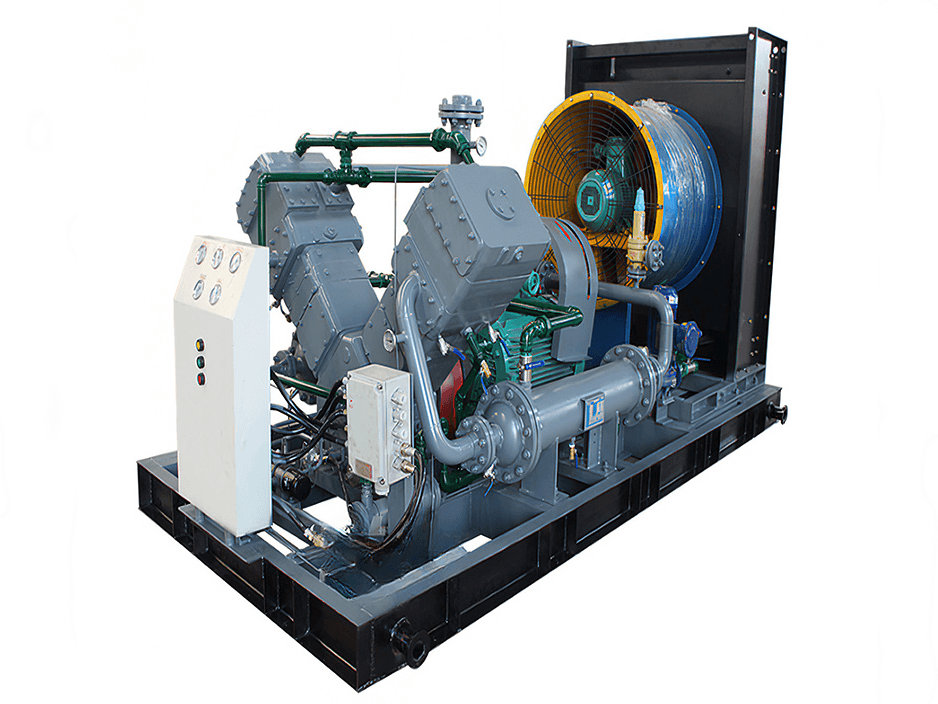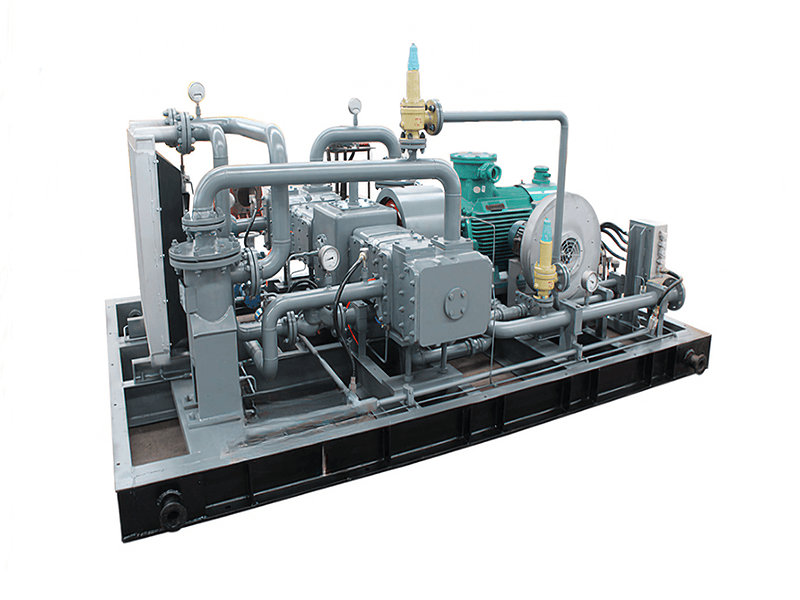【当着老公的面被维修工欺负】最新入口
-

What should we do if the chlorine compressor is corroded
Jul 03, 2024 -

The working principles of chlorine gas compressor
May 24, 2024 -
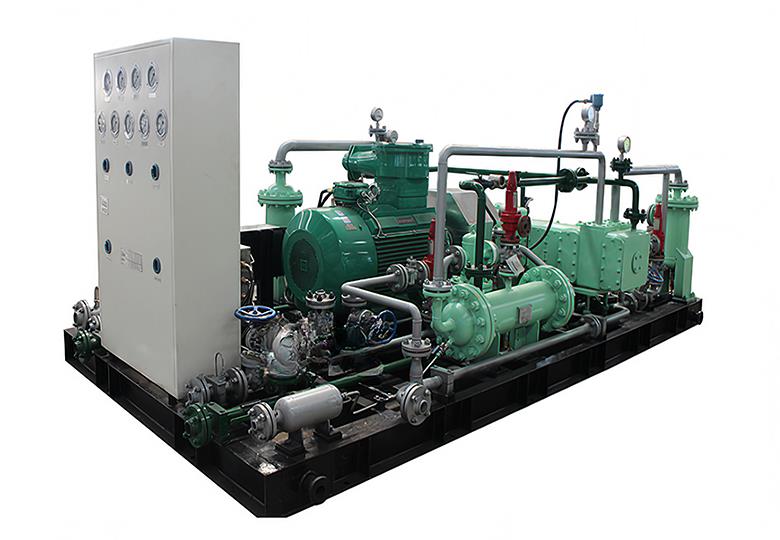
The Advantages And Applications Of Piston Gas Compressors
Apr 11, 2024 -

Features and price range of reciprocating piston chlorine compressors
May 21, 2024 -

Boil-off gas (BOG) and their types
Jun 22, 2024 -

Rich gas and rich gas recovery
Jun 01, 2024
当着老公的面被维修工欺负【乾坤易变】Jun 22, 2024
by:Anhui Shengnuo Compressor Manufacturing Co.,Ltd
Follow Us:
A boil-off gas compressor, also known as a BOG compressor, is a type of compressor specifically designed for handling and compressing boil-off gas that is produced during the storage or transportation of liquefied gases. Its primary function is to capture and compress the boil-off gas, increasing its pressure for further processing or utilization.
The boil-off gas compressor is an essential component in cryogenic systems, particularly in facilities where liquefied gases such as LNG or LPG are stored or transported. The compressor helps manage the boil-off gas generated due to heat ingress into the storage or transportation system, preventing excessive pressure buildup and product losses.
Some key features and characteristics of a boil-off gas compressor include:
1. Compression Capacity: BOG compressors are designed to handle the specific flow rate and volume of boil-off gas generated in the system. The compression capacity depends on factors such as the storage system size, boil-off rate, and the desired discharge pressure.
2. Cryogenic Compatibility: Boil-off gas compressors are engineered to operate in cryogenic environments and handle extremely low-temperature gases. They are designed with specialized materials, seals, and lubrication systems to withstand the cold temperatures and prevent any issues related to low-temperature operation.
3. Reliability and Safety: BOG compressors are built to be reliable and operate safely in demanding cryogenic conditions. They are equipped with safety features such as pressure relief valves, temperature sensors, and control systems to ensure proper operation and prevent any potential hazards.
4. Gas Handling and Contamination Control: Boil-off gas compressors are designed to handle the specific composition of the gas, accounting for its impurities and potential contaminants. They incorporate filtration systems and gas handling mechanisms to remove any particulates or impurities present in the boil-off gas, ensuring the compressor's smooth operation and protecting downstream equipment.
5. Efficiency and Energy Conservation: BOG compressors aim to achieve high efficiency and energy conservation. They are often equipped with advanced control systems, variable speed drives, and optimized compression processes to minimize energy consumption while maintaining the desired compression level.
The selection and design of a boil-off gas compressor depend on various factors, including the specific application, gas composition, required compression ratio, and overall system requirements. Proper sizing and integration of the boil-off gas compressor into the cryogenic system are essential to ensure efficient and reliable operation while effectively managing the generated boil-off gas.

Types of boil-off gas compressor
There are various types of boil-off gas compressors available, each designed to meet specific requirements and operating conditions. Here are some common types of boil-off gas compressors:
1. Reciprocating Compressors: Reciprocating compressors use a piston-cylinder arrangement to compress the gas. They are often used for small to medium capacity applications and are capable of handling high-pressure differentials. Reciprocating compressors can be either single-stage or multi-stage, depending on the desired discharge pressure.
2. Centrifugal Compressors: Centrifugal compressors utilize high-speed rotating impellers to impart kinetic energy to the gas, which is then converted into pressure. They are well-suited for large capacity applications and higher discharge pressures. Centrifugal compressors are known for their compact design, high efficiency, and smooth operation.
3. Screw Compressors: Screw compressors use two intermeshing rotors to compress the gas. As the rotors rotate, the gas is trapped and compressed between the rotor lobes and the housing. Screw compressors are known for their continuous and pulsation-free gas flow, making them suitable for handling boil-off gas with varying flow rates.
4. Scroll Compressors: Scroll compressors use two interlocking scrolls to compress the gas. The gas is trapped in the pockets formed between the scrolls and then compressed as the scrolls move. Scroll compressors are often used for smaller capacity applications and are known for their quiet operation, reliability, and low maintenance requirements.
5. Liquid Ring Compressors: Liquid ring compressors use a rotating liquid ring to compress the gas. The liquid ring creates a seal between the impeller and the compressor casing, enabling compression. Liquid ring compressors are commonly used for handling wet gases or gases with high vapor pressures.
The selection of the appropriate boil-off gas compressor depends on factors such as the required compression ratio, flow rate, discharge pressure, gas composition, and system specifications. It is important to consider factors such as reliability, efficiency, maintenance requirements, and compatibility with cryogenic conditions when choosing the type of compressor for a specific application.
The price range of boil-off gas compressors can vary significantly depending on several factors, including the compressor type, capacity, specifications, and supplier. Additionally, market conditions and geographical location can also influence the pricing. It is important to consult with compressor manufacturers or suppliers to obtain accurate and up-to-date pricing information.
Generally, reciprocating compressors tend to have a lower upfront cost compared to centrifugal compressors. Screw compressors and scroll compressors fall within a mid-range price category. Liquid ring compressors can vary in price depending on the specific requirements and application.
To provide a rough estimate, the price range for smaller capacity boil-off gas compressors (e.g., up to a few hundred horsepower) can start from a few thousand dollars and go up to tens of thousands of dollars. For larger capacity compressors (e.g., several hundred to thousands of horsepower), the prices can range from tens of thousands of dollars to several hundred thousand dollars or more.
It's important to note that the prices mentioned above are approximate and should be considered as a general guideline. The actual pricing will depend on the specific compressor model, features, customization requirements, and other factors specific to the project or application. It is recommended to reach out to compressor manufacturers or suppliers for accurate and detailed pricing information based on your specific needs.
【当着老公的面被维修工欺负】注册登录

Hi! Welcome back.
How are you doing?
Let s talk! We’ll provide the perfect solution for you!

Since its establishment, ASC Compressor has focused on comprehensive solutions for Oilfield industry, CNG/LNG industry, Environmental protection, and Industrial compression. It has excellent quality in designing, researching, producing and manufacturing.
- Quick Link > Home > Products > Applications > News > About > Contact
-
Contact Us
- E-Mail: [email protected]
- Tel: +8618098536798/+86(0)5633698699
- Fax: +86(0)5633698699
-
Address:
No. 17 Xingye Road, Economic Development Zone, Xuanzhou District, Xuancheng City, Anhui Province, China






